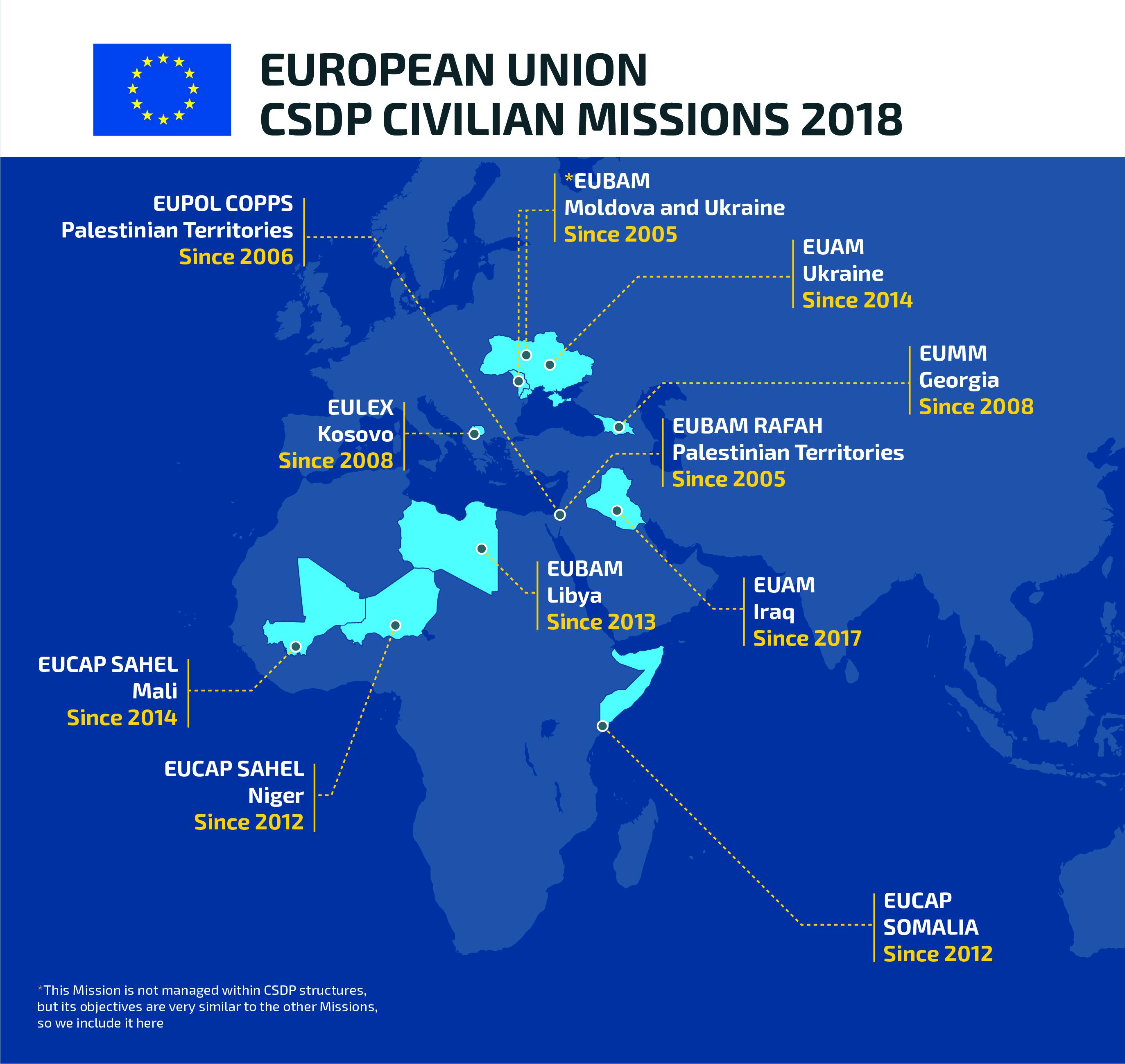As the EU beefs up its military and defence capacities, EU ministers of foreign affairs on 28 May endorsed a package of measures to in parallel further strengthen the Union’s civilian security capabilities. This reflects the EU’s commitment to an integrated approach to security, combining civilian and military tools for effective conflict prevention and crisis response.
The EU currently deploys six military and ten civilian missions and operations in third partner countries as part of its security and defence policy. A lot of attention has been devoted to the impressive progress achieved more recently in the area of EU defence. However, when it comes to addressing today’s complex security challenges, civilian missions in fragile partner countries are an equally crucial element in the EU’s toolbox to respond to crises or conflict in a tailor-made way. With this in mind, meeting on 28 May in Brussels, EU foreign ministers agreed to a series of measures meant to boost the effectiveness of the civilian missions through facilitating planning, decision making and recruitment, enhanced mainstreaming of gender and human rights issues and increased coordination with internal EU policies or EU military missions in the same theatre.
Civilian missions play a large and increasing role in the EU’s global engagement for peace and security. They can help to address, in combination with other EU instruments, a wide range of security challenges in partner countries, including those linked to irregular migration, hybrid threats, terrorism, organised crime, border management and maritime security, as well as preventing and countering violent extremism.
Their mandates range from supporting and contributing to judicial reforms, to working with third country police forces on issues such as data protection, cybercrime or family protection from violence, providing border assistance and organising and conducting training courses to advising relevant security actors on legal reforms, action plans as well as at an operational level.

Currently 2,000 women and men work in the ten civilian missions in third countries in Europe, Africa and the Middle East, which often focus on boosting local capacity. In 2017 around 530 training events supported over 11,000 local agents on topics such as forensic techniques, combatting trafficking of human beings, border management, anti-corruption and human rights. In Iraq for example the EU Advisory Mission (EUAM) contributes to building a strong and credible police force, while in Kosovo EU staff work on developing rule-of-law capacity and fighting against organised crime and corruption. The EU also provides monitoring missions, for example in Georgia where the EU mission helps to defuse tension before it can result in new conflict.
The move by the Council of foreign ministers is one in a series of initiatives to boost the EU’s role as security provider. In today’s world, instability and threats in any third country or region can also directly affect EU security. Protecting the EU is hence a major theme in the Global Strategy for the European Union’s Foreign and Security Policy submitted in 2016 by High Representative Mogherini. In this context, the EU supports fragile partner countries through a tailor made mix of policies and interventions in an integrated manner. For example diplomatic interventions are combined with development or security related measures, other policies or the said civilian missions in accordance with the specific situation and needs over the cycle of a crisis or conflict.




